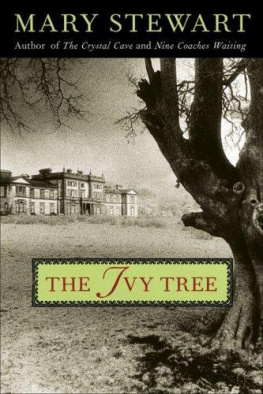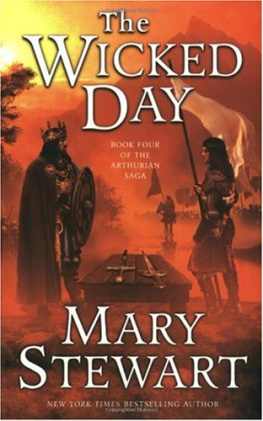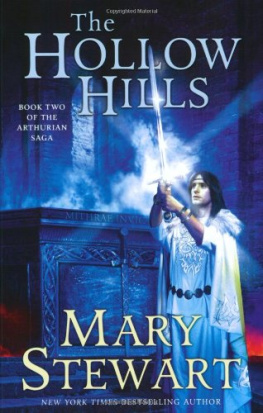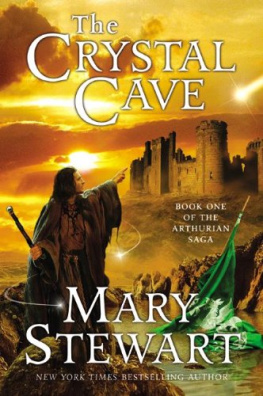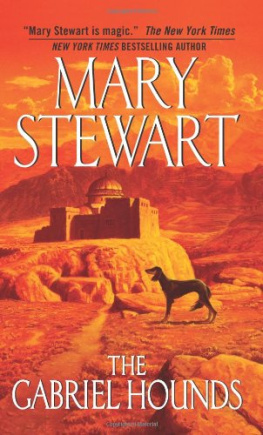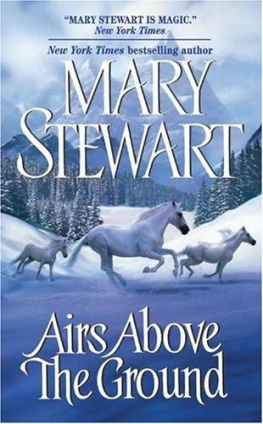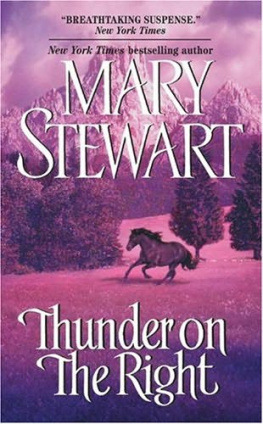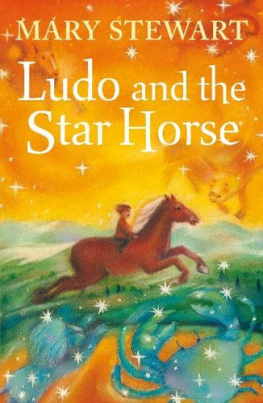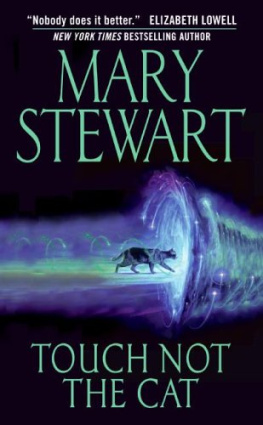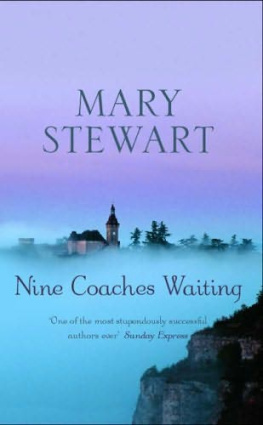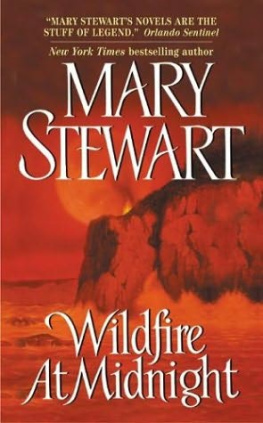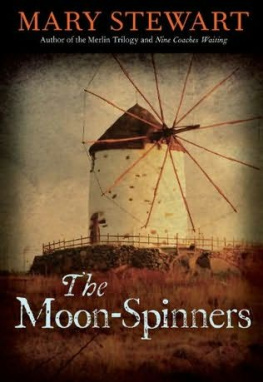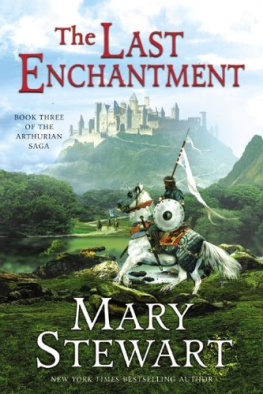Mary Stewart - The Ivy Tree
Here you can read online Mary Stewart - The Ivy Tree full text of the book (entire story) in english for free. Download pdf and epub, get meaning, cover and reviews about this ebook. year: 1990, publisher: Coronet, genre: Prose. Description of the work, (preface) as well as reviews are available. Best literature library LitArk.com created for fans of good reading and offers a wide selection of genres:
Romance novel
Science fiction
Adventure
Detective
Science
History
Home and family
Prose
Art
Politics
Computer
Non-fiction
Religion
Business
Children
Humor
Choose a favorite category and find really read worthwhile books. Enjoy immersion in the world of imagination, feel the emotions of the characters or learn something new for yourself, make an fascinating discovery.
- Book:The Ivy Tree
- Author:
- Publisher:Coronet
- Genre:
- Year:1990
- Rating:3 / 5
- Favourites:Add to favourites
- Your mark:
- 60
- 1
- 2
- 3
- 4
- 5
The Ivy Tree: summary, description and annotation
We offer to read an annotation, description, summary or preface (depends on what the author of the book "The Ivy Tree" wrote himself). If you haven't found the necessary information about the book — write in the comments, we will try to find it.
The Ivy Tree — read online for free the complete book (whole text) full work
Below is the text of the book, divided by pages. System saving the place of the last page read, allows you to conveniently read the book "The Ivy Tree" online for free, without having to search again every time where you left off. Put a bookmark, and you can go to the page where you finished reading at any time.
Font size:
Interval:
Bookmark:
For
Fredith and Thomas Kemp
A north country maid up to London had stray'd, Although with her nature it did not agree; She wept, and she sighed, and she bitterly cried: 'I wish once again in the north I could be!
Oh I the oak and the ash, and the bonny ivy tree, They flourish at home in the North Country.
'No doubt, did I please, I could marry with ease;
Where maidens are fair many lovers will come: But he whom I wed must be North Country bred, And carry me back to my North Country home. Oh I the oak and the ash, and the bonny ivy tree, They flourish at home in my own country.'
Seventeenth Century Traditional
THE IVY TREE
An English June in the Roman Wall country; the ruin of a beautiful old house, standing cheek-by-jowl with the solid, sunlit prosperity of the manor farm - this is the setting for The Ivy Tree.
"The Ivy Tree has the ideal thriller blend of plot, suspense, character drawing and good writing ... it opens with the impact of a rifle report on a calm summer's day and drives to its climax of action with compelling urgency"
Daily Express
"Mary Stewart Harvests a rewarding field. Her credible heroines get caught up in credible -adventures; her pace is deceptively gentle; her atmosphere perfect."
Evening Standard
CORONET BOOKS
Copyright 1961 by Mary Stewart
First Published 1961
by Hodder and Stoughton Ltd.
Coronet Edition 1964 Fifteenth impression 1980
The characters and situations in this book are entirely imaginary and bear no relation to any real person or actual happening
This book is sold subject to the condition that it shall not, by way of trade or otherwise, be lent, re-sold, hired out or otherwise circulated without the publisher's prior consent in any form of binding or cover other than that in which this is published and without a similar condition including this condition being imposed on the subsequent purchaser.
Printed and bound in Great Britain for Hodder and Stoughton Paperbacks, a division of Hodder and Stoughton Ltd., Mill Road, Dunton Green, Sevenoaks, Kent (Editorial Office: 47 Bedford Square, London, WC1 3DP) by Richard Clay (The Chaucer Press), Ltd, Bungay, Suffolk
Come you not from Newcastle?
Come you not there away? Oh, met you not my true lope?
Traditional.
I MIGHT have been alone in a painted landscape. The sky was still and blue, and the high cauliflower clouds over towards the south seemed to hang without movement. Against their curded bases the fells curved and folded, blue foothills of the Pennines giving way to the misty green of pasture, where, small in the distance as hedge-parsley, trees showed in the folded valleys, symbols, perhaps, of houses and farms. But in all that windless, wide landscape, I could see no sign of man's hand, except the linesas old as the ridge-and-furrow of the pasture below me of the dry stone walls, and the arrogant stride of the great Wall which Hadrian had driven across Northumberland, nearly two thousand years ago. The blocks of the Roman-cut stone were warm against my back. Where I sat, the Wall ran high along a ridge. To the right, the cliff fell sheer away to water, the long reach of Crag Lough, now quiet as glass in the sun. To the left, the sweeping, magnificent view to the Pennines. Ahead of me, ridge after ridge, running west, with the Wall cresting each curve like a stallion's mane.
There was a sycamore in the gully just below me. Some stray current of air rustled its leaves, momentarily, with a sound like rain. Two lambs, their mother astray somewhere not far away, were sleeping, closely cuddled together, in the warm May sunshine. They had watched me for a time, but I sat there without moving, except for the hand that lifted the cigarette to my mouth, and after a while the two heads went down again to the warm grass, and they slept.
I sat in the sun, and thought. Nothing definite, but if I had been asked to define my thoughts they would all have come to one word. England. This turf, this sky, the heartsease in the grass; the old lines of ridge-and-furrow, and the still older ghosts of Roman road and Wall; the ordered, spare beauty of the northern fells; this, at my feet now, was England. This little world. This other Eden, demi-paradise;.. It was lonely enough, certainly. We had it to ourselves, I and the lambs, and the curlew away up above, and the fritillaries that flickered like amber sparks over the spring grasses. I might have been the first and only woman in it; Eve, sitting there in the sunlight and dreaming of Adam ...
"Annabel!"
He spoke from behind me. I hadn't heard him approach. He must have come quietly along the turf to the south of the Wall, with his dog trotting gently at heel. He was less than four yards from me when I whirled round, my cigarette flying from startled fingers down among the wild thyme and yellow cinquefoil that furred the lower courses of the Roman stones.
Dimly I was aware that the lambs had bolted, crying.
The man who had shattered the dream had stopped two yards from me. Not Adam; just a young man in shabby, serviceable country tweeds. He was tall, and slenderly built, with that whippy look to him that told you he would be an ugly customer in a fightand with something else about him that made it sufficiently obvious that he would not need much excuse to join any fight that was going. Possibly it is a look that is inbred with the Irish, for there could be no doubt about this young man's ancestry. He had the almost excessive good looks of a certain type of Irishman, black hair, eyes of startling blue, and charm in the long, mobile mouth. His skin was fair, but had acquired that hard tan which is the result of weathering rather than of sunburn, and which would, in another twenty years, carve his face into a handsome mask of oak. He had a stick in one hand, and a collie hung watchfully at his heels, a beautiful creature with the same kind of springy, rapier grace as the master, and the same air of self-confident good-breeding. Not Adam, no, this intruder into my demi-Eden. But quite possibly the serpent. He was looking just about as friendly and as safe as a black mamba.
He took in his breath in a long sound that might even have been described as a hiss.
"So it is you I thought I couldn't be mistaken! It is you ... The old man always insisted you couldn't be dead, and that you'd come back one day ... and by God, who'd have thought he was right?" He was speaking quite softly, but just what was underlying that very pleasant voice I can't quite describe. The dog heard it, too. It would be too much to say that its hackles lifted, but I saw its ears flatten momentarily, as it rolled him an upward, white-eyed look, and the thick collie-ruff stirred on its neck. I hadn't moved. I must have sat there, dumb and stiff as the stones themselves, gaping up at the man. I did open my mouth to say something, but the quiet, angry voice swept on, edged now with what sounded (fantastic though it should have seemed on that lovely afternoon) like danger.
"And what have you come back for? Tell me that! Just what do you propose to do? Walk straight home and hang up your hat? Because if that's the idea, my girl, you can think again, and fast! It's not your grandfather you'll be dealing with now, you know, it's me... I'm in charge, sweetheart, and I'm staying that way. So be warned."
I did manage to speak then. In face of whatever strong emotion was burning the air between us, anything that I could think of to say could hardly fail to sound absurd. What I achieved at last, in a feeble sort of croak that sounded half paralysed with fright was merely: "II beg your pardon?"
Font size:
Interval:
Bookmark:
Similar books «The Ivy Tree»
Look at similar books to The Ivy Tree. We have selected literature similar in name and meaning in the hope of providing readers with more options to find new, interesting, not yet read works.
Discussion, reviews of the book The Ivy Tree and just readers' own opinions. Leave your comments, write what you think about the work, its meaning or the main characters. Specify what exactly you liked and what you didn't like, and why you think so.

